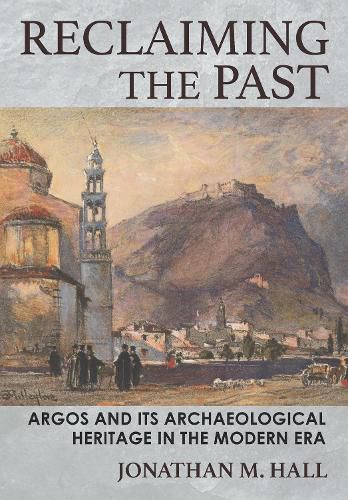Readings Newsletter
Become a Readings Member to make your shopping experience even easier.
Sign in or sign up for free!
You’re not far away from qualifying for FREE standard shipping within Australia
You’ve qualified for FREE standard shipping within Australia
The cart is loading…






Reclaiming the Past examines the post-antique history of Argos and how the city’s archaeological remains have been perceived and experienced since the late eighteenth century by both local residents and foreign visitors to the Greek Peloponnese. The first western visitors to Argos-a city continuously inhabited for six millennia-invariably expected to encounter landscapes described in classical texts-yet what they found fell far short of those expectations. At the same time, local meanings attributed to ancient sites reflected an understanding of the past at odds with the supposed expertise of classically educated outsiders.
Jonathan M. Hall details how new views of Argos emerged after the Greek War of Independence (1821-1830) with the adoption of national narratives connecting the newly independent kingdom to its ancient Hellenic past. With rising local antiquarianism at the end of the nineteenth century, new tensions surfaced between conserving the city’s archaeological heritage and promoting urban development. By carefully assessing the competing knowledge claims between insiders and outsiders over Argos’s rich history, Reclaiming the Past addresses pressing questions about who owns the past.
$9.00 standard shipping within Australia
FREE standard shipping within Australia for orders over $100.00
Express & International shipping calculated at checkout
Reclaiming the Past examines the post-antique history of Argos and how the city’s archaeological remains have been perceived and experienced since the late eighteenth century by both local residents and foreign visitors to the Greek Peloponnese. The first western visitors to Argos-a city continuously inhabited for six millennia-invariably expected to encounter landscapes described in classical texts-yet what they found fell far short of those expectations. At the same time, local meanings attributed to ancient sites reflected an understanding of the past at odds with the supposed expertise of classically educated outsiders.
Jonathan M. Hall details how new views of Argos emerged after the Greek War of Independence (1821-1830) with the adoption of national narratives connecting the newly independent kingdom to its ancient Hellenic past. With rising local antiquarianism at the end of the nineteenth century, new tensions surfaced between conserving the city’s archaeological heritage and promoting urban development. By carefully assessing the competing knowledge claims between insiders and outsiders over Argos’s rich history, Reclaiming the Past addresses pressing questions about who owns the past.